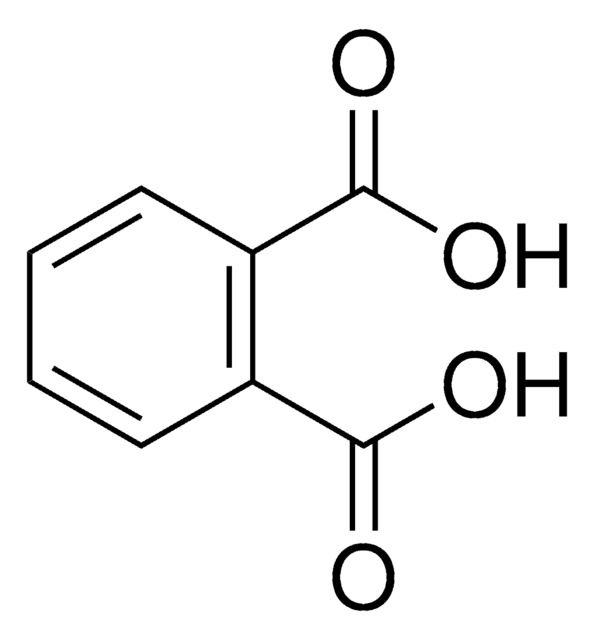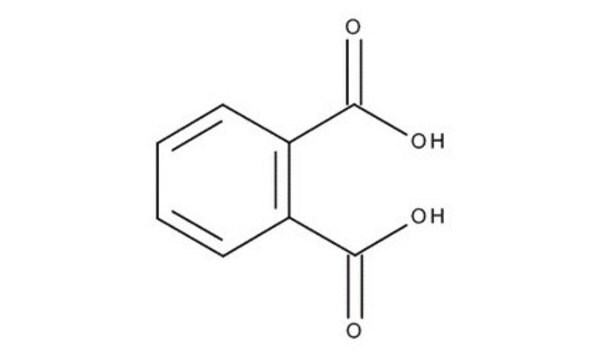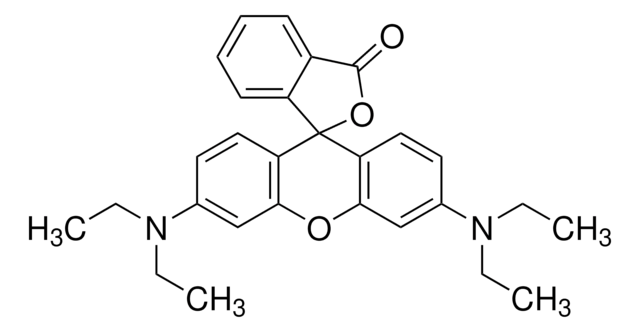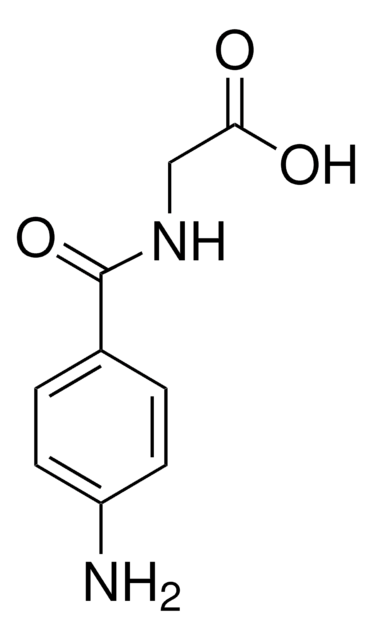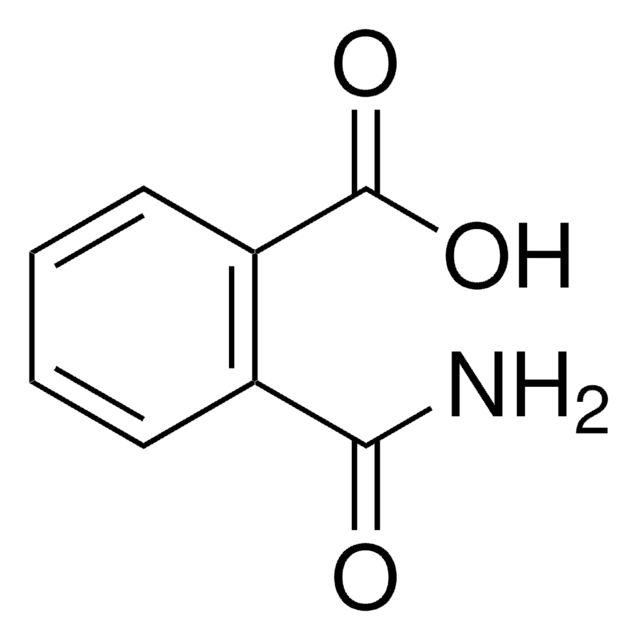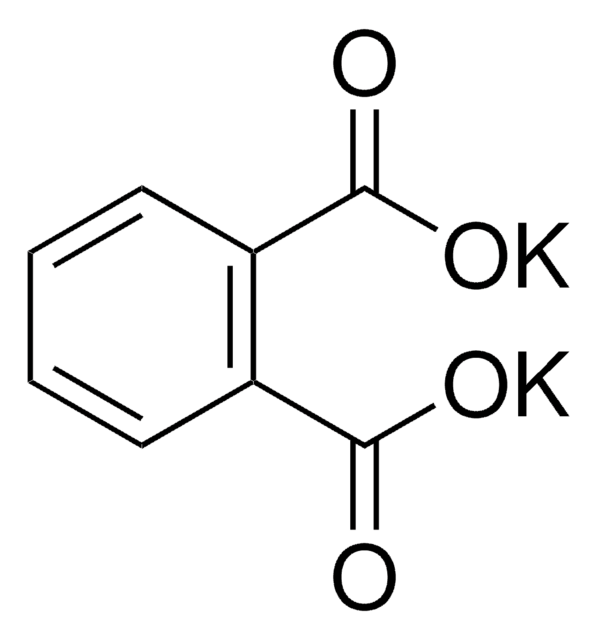80010
Phthalic acid
puriss. p.a., ≥99.5% (T)
Synonym(s):
1,2-Benzenedicarboxylic acid
About This Item
Recommended Products
grade
puriss. p.a.
Quality Level
Assay
≥99.5% (T)
form
powder or crystals
ign. residue
≤0.02% (as SO4)
mp
210-211 °C (dec.) (lit.)
solubility
water: soluble(lit.)
anion traces
chloride (Cl-): ≤50 mg/kg
sulfate (SO42-): ≤50 mg/kg
cation traces
Ca: ≤10 mg/kg
Cd: ≤5 mg/kg
Co: ≤5 mg/kg
Cr: ≤5 mg/kg
Cu: ≤5 mg/kg
Fe: ≤5 mg/kg
K: ≤50 mg/kg
Mg: ≤5 mg/kg
Mn: ≤5 mg/kg
Na: ≤50 mg/kg
Ni: ≤5 mg/kg
Pb: ≤5 mg/kg
Zn: ≤5 mg/kg
functional group
carboxylic acid
SMILES string
OC(C1=C(C(O)=O)C=CC=C1)=O
InChI
1S/C8H6O4/c9-7(10)5-3-1-2-4-6(5)8(11)12/h1-4H,(H,9,10)(H,11,12)
InChI key
XNGIFLGASWRNHJ-UHFFFAOYSA-N
Looking for similar products? Visit Product Comparison Guide
General description
Application
Signal Word
Danger
Hazard Statements
Precautionary Statements
Hazard Classifications
Eye Dam. 1
Storage Class Code
11 - Combustible Solids
WGK
WGK 1
Flash Point(F)
334.4 °F
Flash Point(C)
168 °C
Personal Protective Equipment
Regulatory Listings
Regulatory Listings are mainly provided for chemical products. Only limited information can be provided here for non-chemical products. No entry means none of the components are listed. It is the user’s obligation to ensure the safe and legal use of the product.
JAN Code
80010-1KG:
80010-500G:
80010-BULK:
80010-VAR:
80010-100G:
Choose from one of the most recent versions:
Already Own This Product?
Find documentation for the products that you have recently purchased in the Document Library.
Customers Also Viewed
Our team of scientists has experience in all areas of research including Life Science, Material Science, Chemical Synthesis, Chromatography, Analytical and many others.
Contact Technical Service